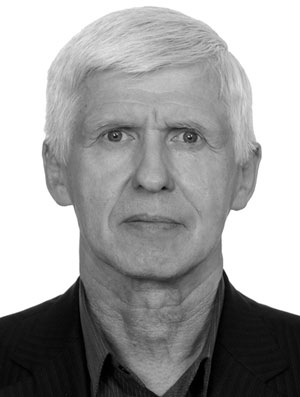Integrative Potential of Planning Physical Education Lesson and Problems of Its Implementation within Practical Training
Фотографии:
ˑ:
V.P. Kopaev, associate professor, Ph.D.
Velikie Luki state academy of physical culture and sport, Velikie Luki
Key words: integrative potential of planning, lesson summary, integrative construct, practical training, diagnostics, quality of training of physical education personnel.
In the context of physical education planning is a kind of administrative activity, logically formalized and materialized, associated with the optimal definition of goals, objectives, means, methods, forms, parameters of loads, organization and other components needed to achieve the expected result. It is an integral function of a teacher and a beginning of any rationally organized educational process. Higher educational level of a specialist promotes more quality planning, as knowledge is its objective basis. During practical training carried out in comprehensive schools students need knowledge in various spheres to plan a lesson of physical education.
References
- Zheleznyak, Yu.D. Integration and systemacy as factors increasing the efficiency of physical training, sports training, physical culture education / Yu.D. Zheleznyak // Teoriya i praktika fizicheskoy kultury. – 2011. – № 3. – P. 24–27. (In Russian)
- Kopaev, V.P. On clarification of the concept of "planning" in the practice of physical education / V.P. Kopaev / Proceedings of the internat. theor.-pract. conf. "Enhancement of personnel training in the field of physical culture and sports within the modernization of higher education in the Baltic Sea Region (November, 25-27 2009). – Velikie Luki, 2010. – P. 236–237. (In Russian)
- Kopaev, V.P. The urgency of development of the technology of integrative planning of physical education in the system of training of physical education personnel // Teacher: past, present, future / V.P. Kopaev / Proceedings of the internat. theor.-pract. conf. (June, 24-25 2010). P. 2. – Pskov: PSPU, 2010. – P. 49–54. (In Russian)
- Kopaev, V.P. Codification of the requirements for a physical education lesson / V.P. Kopaev // Fizicheskaya kultura: vospitanie, obrazovanie, trenirovka . – 2012. – № 4. – P. 10–13. (In Russian)
- Kopaev, V.P. The summary of a physical education lesson as a reflection of the trainee's professional skill level / V.P. Kopaev // Problems of the Olympic movement. Modernity as an object of research: Proceedings of the VI All-Rus. on-site and off-site theor.-pract. conf. with internat. partic. (October, 30-31 2013) and theor.-pract. conf., November, 1-2 2013 Moscow state academy of physical culture. – Malakhovka: MSAPC, 2013. – P. 166–169. (In Russian)
- Kulikova, L.M. Modernization of the content and the organization of continuous teaching practice in a university of physical culture: monograph. – Moscow: Teoriya i praktika fizicheskoy kultury i sporta, 2004. – 269 P. (In Russian)
- Matveev, L.P. Theory and methodology of physical culture / L.P. Matveev. – 3rd ed., ev. and sup. – Moscow: Fizkul’tura i sport, SportAkadePress, 2008. – 544 P. (In Russian)
- Higher school teaching methodologies: teaching practical guide / V.I. Blinov, V.G. Vinenko, I.S. Sergeev. – Moscow: Yurait, 2014. – 315 P. (In Russian)
- Natalov, G.G. Integration of physical culture science / G.G. Natalov // Teoriya i praktika fizicheskoy kultury. – 2004. – № 8. – P. 5–8. (In Russian)




 Журнал "THEORY AND PRACTICE
Журнал "THEORY AND PRACTICE